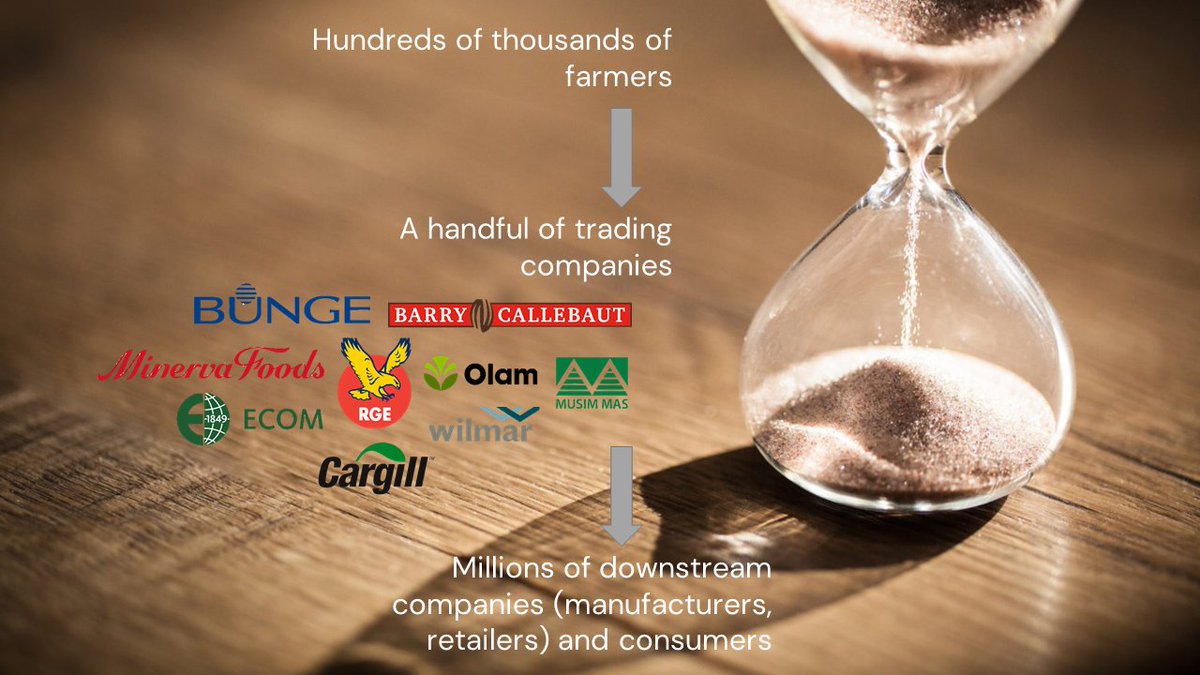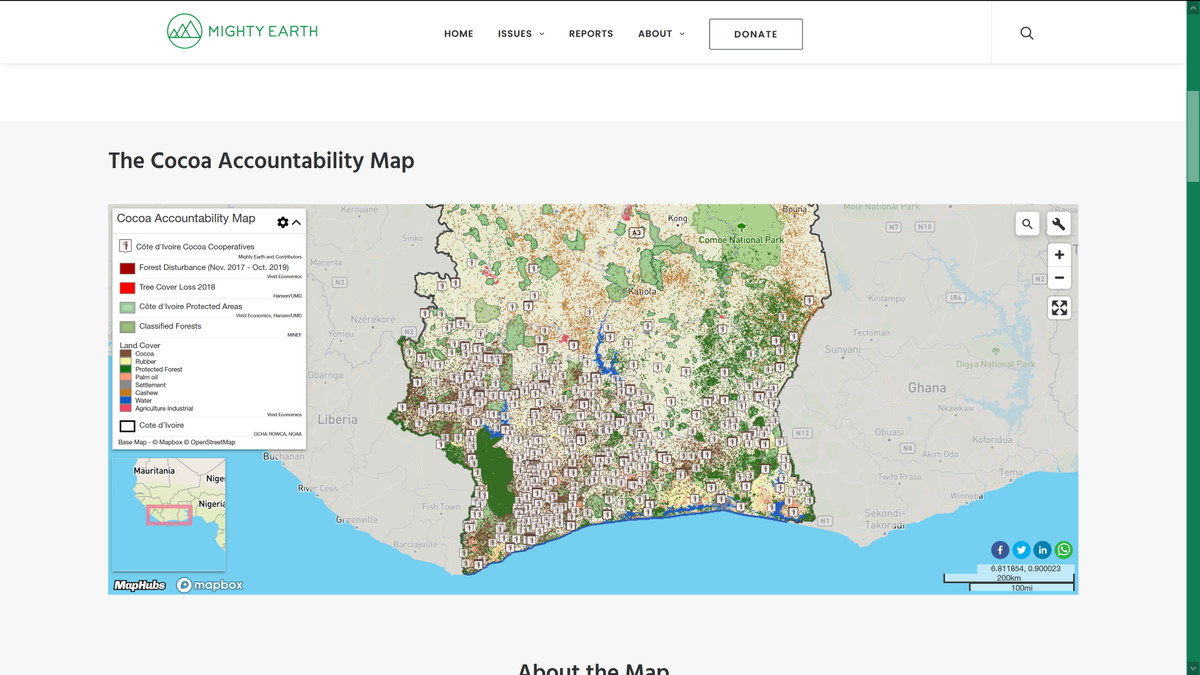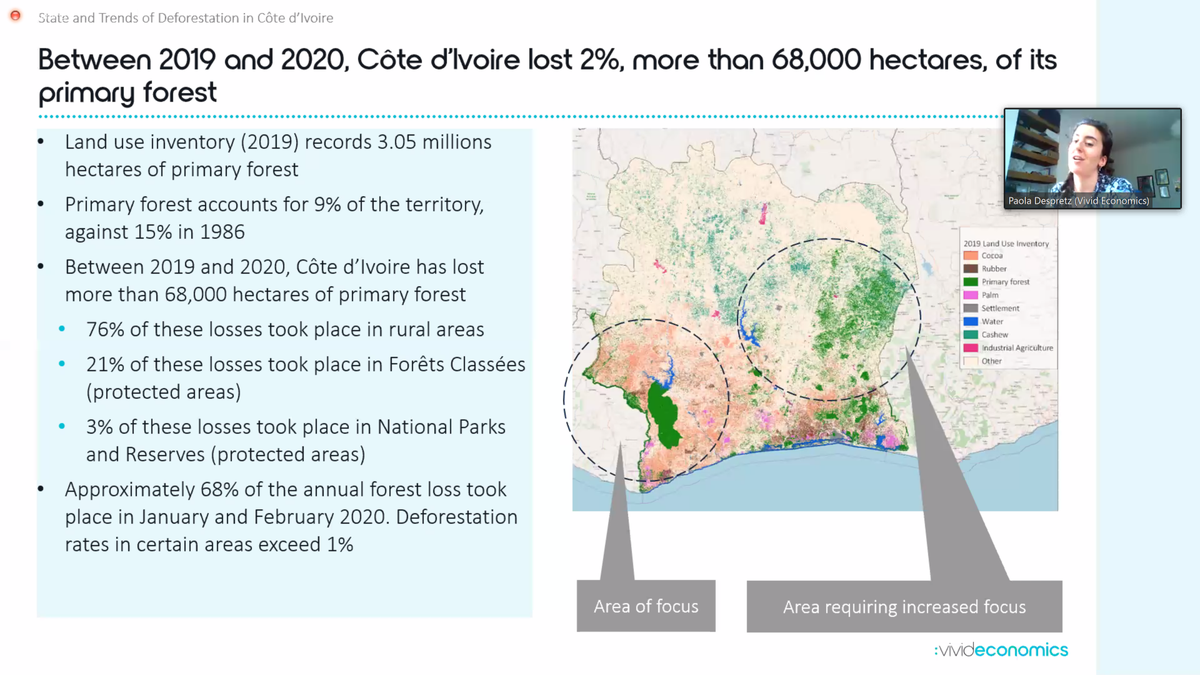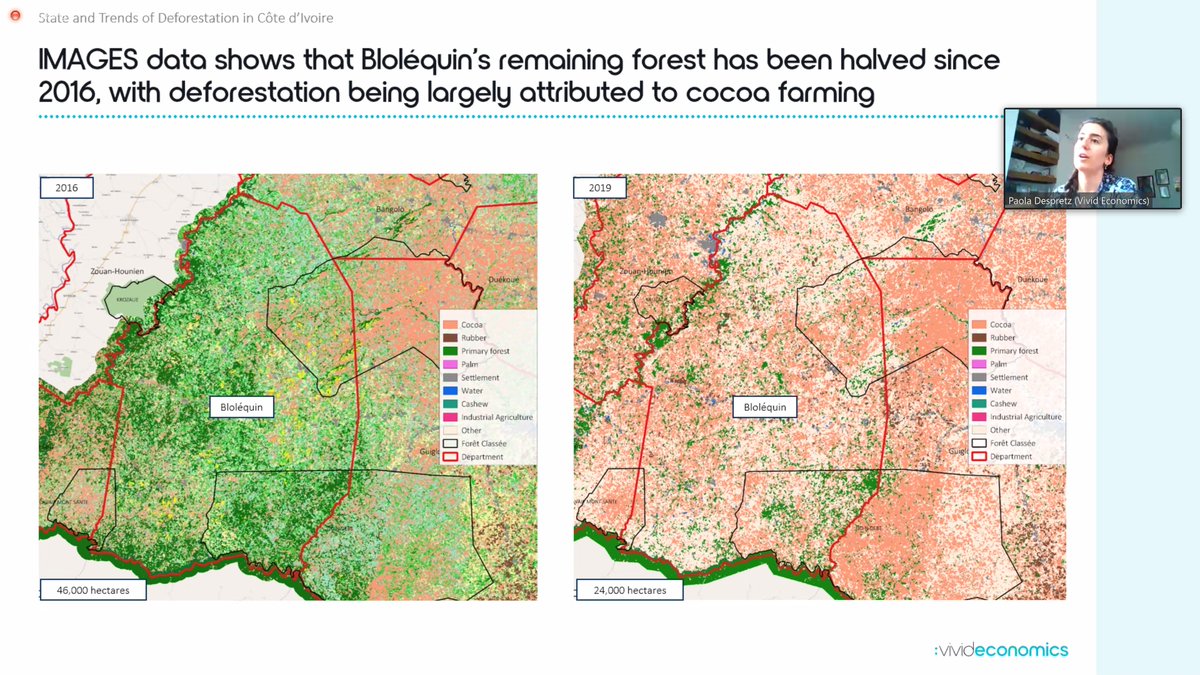
In Nov 2021 the EU commission published a proposal for regulation on deforestation-free trade. After back-&-forth with experts & two debates in the Council, a revised draft was published in June. I'm now reading through - here are some (not so) #HotTakes.
consilium.europa.eu/en/press/press…
consilium.europa.eu/en/press/press…
101: the legislation is designed to prevent the import into the EU of coffee, cocoa, palm oil, soya, beef and wood products which are limited to recent deforestation.
These products must be legally produced & companies placing goods on the EU market - ie commodity traders- must submit a due diligence statement that the risk their products is linked to deforestation is 'negligible'.
What does due diligence mean? The procedure includes three elements: information requirements, risk assessment, and risk mitigation.
The level of proof (ie assessment & mitigation) required will depend on whether the imports come from a high, standard, or low risk area.
The level of proof (ie assessment & mitigation) required will depend on whether the imports come from a high, standard, or low risk area.
Countries will be 'standard' risk by default, then by 18 months post-implementation, the list of high/low risk regions will be published. I say regions, because the wording allows subnational classification of risks. Makes sense, since deforestation is concentrated in 'hotspots'.
The new draft had changed the cut-off date for deforestation. From memory, it was 31 Dec 2020, but now is 31 Dec 2021...
Forest 'degradation' is now included, but with a strict definition: wood from primary forests converted into plantations will not be allowed to enter the EU.
Forest 'degradation' is now included, but with a strict definition: wood from primary forests converted into plantations will not be allowed to enter the EU.
SMEs are excluded from basically all due diligence requirements (eg risk assessment & mitigation, geolocation). They only need to record the registered trade name, the postal address and email
of their suppliers. (This is as weak as it sounds).
of their suppliers. (This is as weak as it sounds).
In terms of transparency, the EU will set up an IT system where companies submit their due diligence evidence. These days will be published in anonymous format, plus companies must provide an annual public report on their due diligence mechanisms.
They promise a first review of the legislation in two years time of basically everything that was controversial, but didn't get included: smallholders, non-forest biomes, rubber. NGOs were pushing hard for rubber to be included this time around.
One new product which was added was processed beef (the EU's main beef import from Brazil)... Traceability here will be hard. I remember Aldi some years ago had QR codes to check the origins of their canned beef from Brazil. But when you checked it would say origin 'unknown'.
The draft's explicit that certification doesn't substitute due-diligence... Interestingly, it promises to review the role of certification in future. Make no mistake, due-diligence is scary for certification, fundamentaly affecting their role in the 'sustainable products' market.
In terms of next steps, the EU parliament will rule on it in September - lobbying of MEPs will continue until then. After that the trilogue* begins!
*Cool name, huh? These are 'informal meetings between members of the Parliament, Council & the Commission' in order to reach agreement on an identical text, before the text can become law.
My phone battery is about to die, so that's all I got.
Disclaimer: though I study sustainable trade & keenly follow the progress of the draft legislation, I am not a lawyer. If in doubt, seek legal advice :)
Disclaimer: though I study sustainable trade & keenly follow the progress of the draft legislation, I am not a lawyer. If in doubt, seek legal advice :)
Another thing I forgot is geolocation, ie identifying the property where commodities were produced. For cattle, this must include all ranches from birth to slaughter, closing the common 'indirect suppliers' loophole. They even want DD (but not geolocation) for the cattle feed!
• • •
Missing some Tweet in this thread? You can try to
force a refresh







